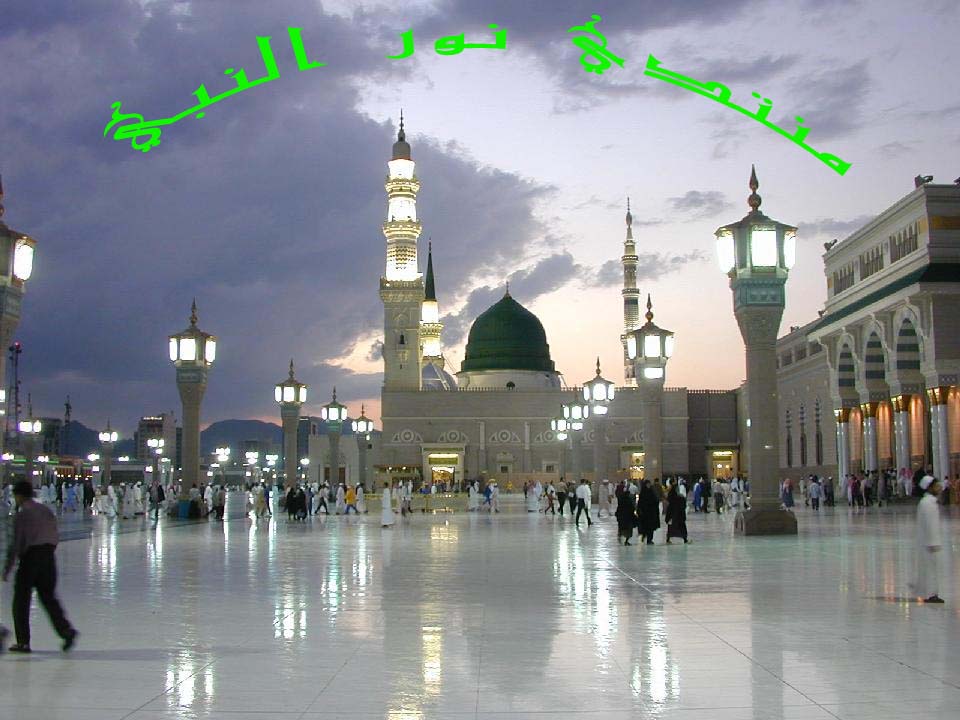تاريخ التسجيل : 01/01/1970
 |  موضوع: Al-Burda) in BBC - by Shaykh Hamza Yusuf موضوع: Al-Burda) in BBC - by Shaykh Hamza Yusuf  الثلاثاء أكتوبر 14, 2008 12:14 am الثلاثاء أكتوبر 14, 2008 12:14 am | |
|  Al-Burda) in BBC - by Shaykh Hamza Yusuf Al-Burda) in BBC - by Shaykh Hamza Yusuf
al-Burda
http://www.bbc.co.uk/religion/religions/islam/features/al_burda/
In June 2002 Britain strengthened its claim to be a thriving multiculture, as London saw the launch of a new translation of the Burda, an Arabic Poem honouring Islam's Prophet Muhammad (Peace be upon him).
The pioneering ArRum club in Clerkenwell was host to Hamza Yusuf, the translator of the poem, as well as the Fez singers who performed the poem. The global popularity of the poem is reflected in the production of a new translation available on CD: translated in California; Calligraphed in Washington DC; sung and recorded in Fez; graphic designed in rural Essex; mixed and mastered in London and Cambridge; printed in Istanbul and bound in Ankara!
Introduction by Hamza Yusuf & Abdullateef Whiteman
Quran Preface (Q.33.56)
On Lyrical Love - section 1 of al-Burda
The poem joins a vast body of literature in praise of the Prophet (peace be upon him) that emerged from an Islamic culture where seeking knowledge of him was encouraged. Imam Al-Busiri both acknowledges this and the shortcomings of describing the Prophet (peace be upon him) in the poem itself.
He is like the sun, small to the eye when seen from afar,
But when glimpsed close up. It dazzles and overwhelms.
The famous Mamluke minister Ibn Hinna, who served under the legendry sultan, Barbys, took Imam al-Busiri under his patronage and freed him to write his poems in material security. However, art often suffers when the artist is freed from suffering, and comes to life when calamities call. His greatest poem would result from a powerful tribulation: he woke up to find he was paralysed; half his body without movement. Suddenly, this man, whose erudition and art had elevated him to the status of prince of poets of his time, was reduced to an invalid unable to rise from his bed. This state of affliction stirred him to write the Burda. Centuries later the poem is still able to move listeners to tears. Imam al-Busiri himself related the experience.
'... I began to contemplate writing a poem in the qasida form, and soon after, I did so as a way of interceding by it with the Messenger of God to God, the Exalted, hoping that he might heal me.
'I was repeating it often, singing it, calling upon God through it, and seeking intercession with it. During that time, while sleepling, I saw the Prophet, upon him and his family be prayers and peace. He wiped over my face with his blessed hand and thrust upon me his cloak. I immediately got up and left my house. I had told no one of my poem nor of anything I had been doing prior to that.
'On the road, I met a fellow spiritual wayfarer, who said to me, "I want you to give me a copy of the poem you wrote in praise of the Prophet, upon him be prayers and peace."
'I responded, "which one?"
'He said, "The one you wrote during your illness."
'He then recited its opening lines saying, "By God, I heard it in a vision last night recited in the presence of God's messenger, upon him and his family blessing and peace. It greatly pleased the prophet, and I saw him thrust his cloak on the one who wrote it!"
'I provided him with a copy, and he began telling others of his vision. Thus its news spread far and wide.''... I began to contemplate writing a poem in the qasida form, and soon after, I did so as a way of interceding by it with the Messenger of God to God, the Exalted, hoping that he might heal me.
Imam al-Busiri died in Alexandria, Egypt in the year 1295 CE. His grave is well known and is connected to a large mosque. His poem embellishes its walls. The Burda was also engraved on the Prophet's mosque in Madina, upon its inhabitant be the best of prayers and peace. There it adorned its walls and reminded believers for centuries before being erased by people who could not comprehend it. There is still one line left that has not been removed:
He is the beloved whose intercession is hoped for
As arms against a host of relentless calamities | |
|
